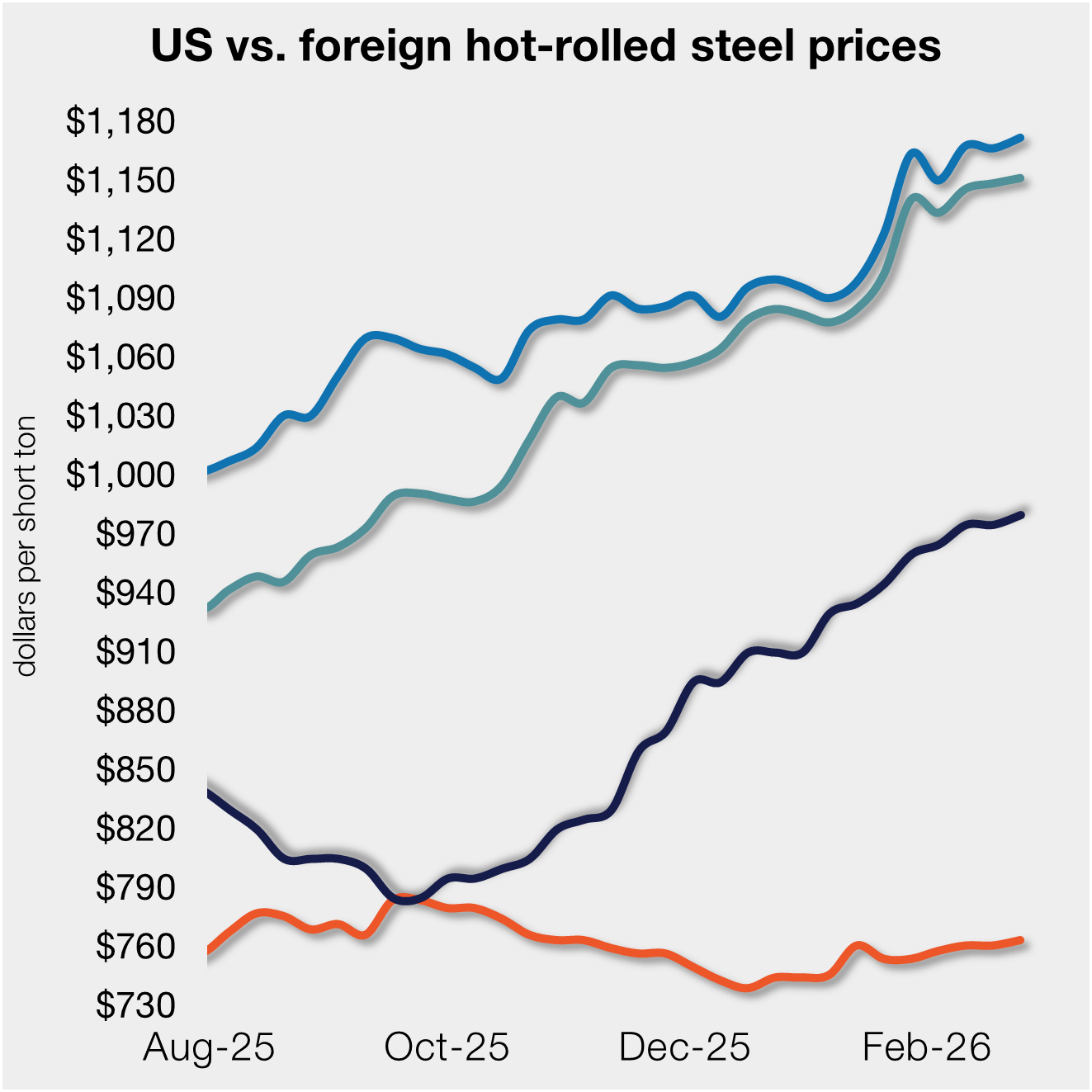Prices

February 25, 2021
U.S. Crude Steel Output Down, Some Import Volumes Up
Written by Michael Cowden
U.S. crude steel production fell sharply in January 2021 versus the same month last year even as production rose in most other major steelmaking nations, according to figures from the World Steel Association.
And with domestic supplies scarce, some buyer sources have told Steel Market Update that they are taking a closer look at the import market.
![]() U.S. Production Down
U.S. Production Down
The U.S. was one of two top 10 steelmaking nations to produce less steel in January 2021 than in January 2020.
Domestic mills produced 6.9 million metric tonnes in January 2021, down 9.9% compared to the same month in 2020. And Japan produced 7.9 million tonnes last month, down 3.9% from January 2020, per World Steel data.
The other eight big steelmaking nations lodged solid increases.
China, the world’s largest steelmaker, produced an estimated 90.2 million tonnes in January 2021, up 6.8% from January 2020. Germany, the European Union’s biggest steelmaker, produced 3.3 million tonnes last month, up 6% versus a year earlier. And Brazil, South America’s largest steelmaker, churned out 3 million tonnes in January 2021, a 10.8% gain compared to January 2020.
Turkey, an important supplier to the U.S. market, produced 3.4 million tonnes last month – up 12.7% from January a year ago.
Imports Rising?
The drop in domestic production and gains in foreign steel output come as U.S. steel consumers are increasingly fed up with long lead times and limited availability at North American mills.
“Everyone wants to buy galvanized. But there is no (spot) availability. … Galvalume is like gold,” one domestic mill source said.
With lead times extended and spot options limited, some buyers are ordering, or at least considering, import markets they had largely ignored since the summer of last year, when U.S. steel prices briefly fell below those abroad.
Some respondents to a recent SMU survey, for example, said they were investigating or had transacted on offers for foreign hot-rolled coil at prices of approximately $960-1,000 per ton ($48-50/cwt).
That price range represents material from Turkey, South Korea and Egypt scheduled to arrive in late spring or summer, survey respondents said.
Such prices represent a discount of $210-250 per ton from SMU’s benchmark hot-rolled coil price of $1,210 per ton.
It’s unclear to date whether such wide spreads between foreign and domestic prices might result in increased imports over the summer months. But February import volumes – even though the month is not yet complete – are already running ahead of January levels for some products.
One example: The U.S. was licensed to import 162,347.3 metric tonnes of hot-rolled coil through Feb. 24, the latest date for which that data is available from the U.S. Commerce Department. That figure – even though February is not yet complete – is already nearly 35% higher than the 120,336 tonnes that arrived in all of January.
On the cold-rolled coil front, the U.S. was licensed to import 85,481 tonnes through Feb. 24, up more than 58% from the 53,977 tonnes that arrived in January, per Commerce data.
By Michael Cowden, Michael@SteelMarketUpdate.com







